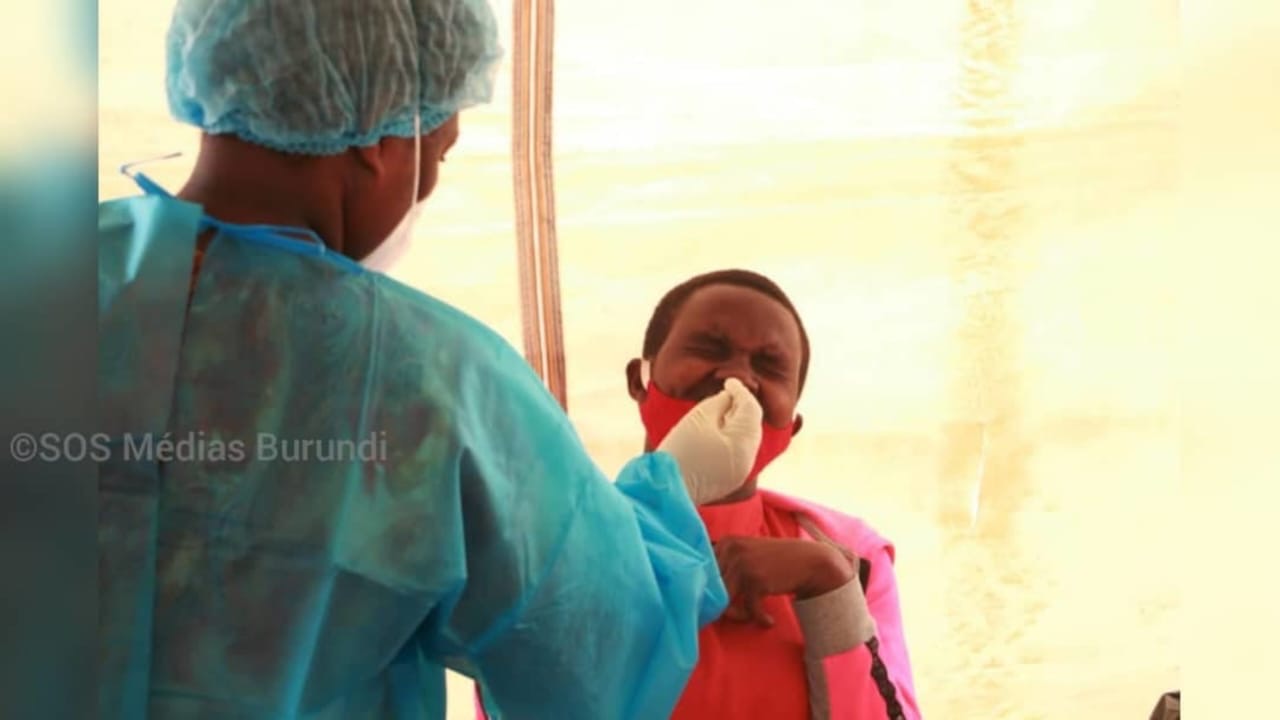Covid-19: Five Years After Denial, the Virus’s Return Rekindles Worries in Bujumbura

SOS Médias Burundi
Bujumbura, June 18, 2025 — Five years after a controversial handling of Covid-19 marked by government denial and the suspicious death of former President Pierre Nkurunziza, the virus appears to be resurfacing in Bujumbura. The President of the National Assembly has sounded the alarm, while the Ministry of Health remains silent. This situation revives painful memories of 2020, when Denise Nkurunziza, then First Lady, was urgently evacuated to Nairobi, seriously ill from the virus, according to information gathered by SOS Médias Burundi.
On Tuesday, June 17, during an oral questions session at Parliament, Daniel Gélase Ndabirabe revealed that several hospitals in the economic capital are facing a worrying surge of severe symptomatic cases.
Speaking from the chamber in Kigobe, he delivered an alarming testimony, based on his own observations in some health facilities in Bujumbura—the commercial city.
“I have visited several hospitals and was told that Covid-19 is back. The symptoms differ from before and rapidly worsen patients’ conditions. This is very dangerous,” he declared before deputies, who appeared both surprised and skeptical.
He urged the public, especially lawmakers, to strictly observe hygiene measures: hand washing, disinfection of workplaces, and eliminating handshakes.
“Let us remain vigilant; this pandemic is not over. Everyone must do their part,” insisted the National Assembly president.
Yet, no official figures were provided, and the Ministry of Public Health has not spoken out. This silence unsettles Burundians and recalls a painful past.
A look back at 2020: state denial
On March 31, 2020, Burundi announced its first two Covid-19 cases, while most African countries were already affected. Until then, the late President Pierre Nkurunziza’s regime claimed the country was spared thanks to divine protection.
“Burundi is under God’s protection,” said several senior officials. Churches remained open, religious gatherings continued, and no lockdown was planned.
This refusal to face reality was also politically motivated: holding the May 2020 elections at all costs, to ensure the transition to Évariste Ndayishimiye. Acknowledging the epidemic could have jeopardized this schedule.
The government even expelled four WHO experts accused of “interference” in May 2020. Without massive testing or a credible health plan, the country remained blind to the virus’s spread.
Nkurunziza’s death and the First Lady’s discreet evacuation
On June 8, 2020, Pierre Nkurunziza officially died of a heart attack. However, Burundian and international sources claimed he had contracted Covid-19, a theory never officially confirmed.
According to SOS Médias Burundi’s verified information, his wife, Denise Bucumi Nkurunziza, was urgently evacuated to Nairobi, Kenya, in critical condition after contracting the virus. This evacuation, quietly orchestrated by a specialized medical team, saved her life.
His successor, Évariste Ndayishimiye, broke with denial by calling Covid-19 the “number one enemy.” But the measures implemented remained limited: no lockdown, no mass vaccination strategy, and an ongoing pervasive religious discourse.
Ignored warning signs?
Today, Ndabirabe’s statement comes amid unclear circumstances. Some Bujumbura doctors discreetly report severe respiratory distress cases, but no health authority has confirmed these data. Inside the ruling party, the National Assembly president’s remarks have stirred debate.
“If this pandemic is truly back, the Ministry of Health must break its silence. We cannot repeat past mistakes,” a CNDD-FDD deputy confided to SOS Médias Burundi.
A collective trauma resurfaces
The shadow of denial hangs again over Burundi. In the absence of official communication, rumors fill the void, blending popular anxiety and parliamentary criticism. In a society still marked by the sudden loss of a president, the scars of opaque management re-emerge.
Five years later, the country seems torn between vigilance and silence. For Burundians, Covid-19 is not just a health threat — it is a stark reminder of the consequences of denial.

